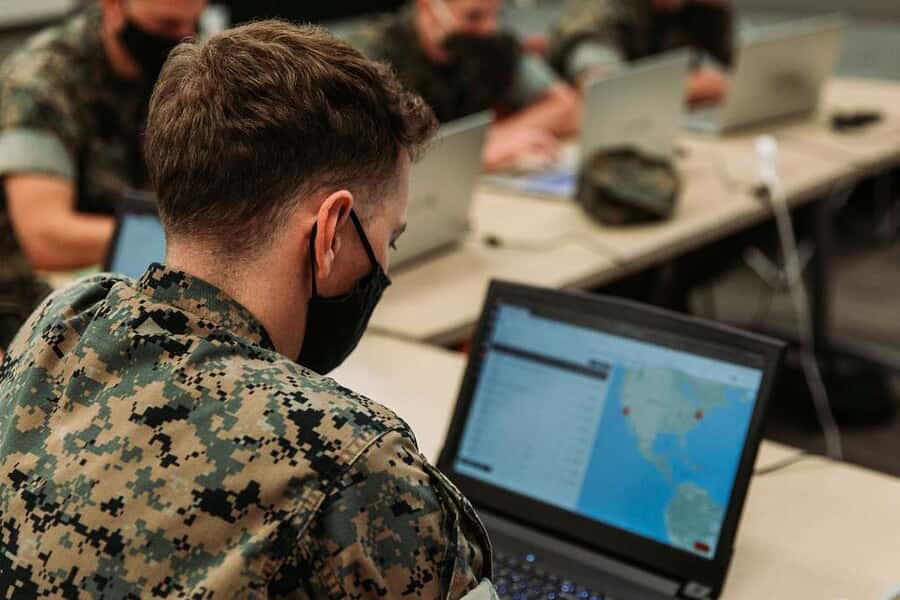Today's Headlines and Commentary
The siege of rebel-held territory in Aleppo continues as the Syrian government launches a multi-front ground offensive against the remaining insurgents, the Guardian reports.
The siege of rebel-held territory in Aleppo continues as the Syrian government launches a multi-front ground offensive against the remaining insurgents, the Guardian reports. The entrenched rebel forces have years of experience in urban combat and have committed to “fight until the end,” notes the AP.
The week-long barrage of Russian and Syrian airstrikes laid the groundwork for the current ground offensive, causing significant humanitarian harm in the process. The Washington Post remarks that airstrikes have disabled the two largest hospitals in Aleppo, while the remaining hospitals are poorly supplied and unequipped to handle the population’s needs. The Syrian regime has been criticized for intentionally targeting medical facilities in its attack on the Aleppo area.
The prominent civil defense group known as the White Helmets is losing the ability to rescue victims of bombings, the Wall Street Journal observes. Regime airstrikes earlier this week disabled several of the group's operating facilities, and it is now running low on “fuel and functioning machinery.” At the same time that the White Helmets are losing capacity, the civilian need for rescue services is skyrocketing under the intense regime bombardment of Aleppo.
The assault on Aleppo is part of the Syrian government’s attempt to control the country’s four largest cities, writes the AP. Aleppo is the last of the four left, with the government controlling Damascus, Homs, and Hama. The siege of Homs ended last Friday with the negotiated evacuation of the last 300 rebels defending territory in the city.
Syrian rebels have received Russian-made Grad surface-to-surface rockets, Reuters notes. According to a rebel commander, an unnamed foreign sponsor provided the weapons in response to the renewed offensive in Aleppo. Syrian rebels have had access to the rockets before, but the most recently distributed weapons may include new variants.
The United States is consulting with the Iraqi government on sending an additional 500 troops in preparation for the impending Mosul offensive, Reuters reports. A U.S. official claimed that the United States is “prepared” to deploy more personnel in a “train and advise” capacity. The discussion comes amid news that the Islamic State has lost access to all oil wells in Iraq after a successful U.S.-backed offensive near Kirkuk.
An American airstrike in Afghanistan may have killed 13 civilians, the AP tells us. An Afghan official indicated that the airstrike was likely targeting the Islamic State. The U.S. military is now investigating reports of civilian casualties.
A Dutch investigation has revealed new evidence implicating Russia’s involvement in the downing of Malaysia Airlines flight MH17 over Ukraine. The investigators found that a Russian-made Buk surface-to-air system, which was “brought in from the Russian Federation territory and then returned to the Russian Federation afterwards,” destroyed the aircraft. Russia has denied its involvement with the Ukrainian insurgency in general and the downing of MH17 in particular--and while Russian officials have changed their explanation for the incident multiple times, but still vehemently deny the validity of the investigation's findings. The Financial Times has more.
The United States believes that Russia is backing a network of hackers working to release information to undermine the American government, the Journal remarks. Officials suspect that Guccifer 2.0, the hacker ostensibly behind the DNC attacks, is part of this network. Meanwhile, Reuters tells us that cell phones used by Democratic Party officials were also targeted by hackers earlier this month, though it is unclear if the hackers succeeded.
The New York Times profiles Vladimir Fomenko, a Russian national who is the only person who has been publicly implicated in the DNC attacks. Fomenko owns a Russian-based server firm that hackers have used when targeting American political targets, though he denies any personal involvement in the attacks. He says he has offered to assist the FBI in its investigation of the DNC hacks, but has not had any response from the Bureau: “It’s like nobody wants to sort this out.”
The White House tried to delay the release of a statement by Senator Dianne Feinstein and Representative Adam Schiff voicing frustration on the administration’s unwillingness to blame Russia for recent cyberattacks on U.S. political entities, Buzzfeed reports. While Russia’s role in the hacking is widely suspected, the Obama administration has held back from explicitly blaming the Kremlin.
The European Commission is considering revising export controls on cyber-surveillance technologies, Reuters observes. The proposals include measures to create legal clarity, simplify regulations, and better control dual-use technologies.
A Norwegian court declined to promise Edward Snowden free passage into the country to receive a free speech award, Reuters writes. The court argued that it could not decide on extradition before Snowden had entered the country.
The German government is becoming less welcome to refugees and migrants from the Middle East, observes the Washington Post. German anti-migrant parties have recently secured several political victories over German Chancellor Angela Merkel’s party in a perceived rebuke to Merkel’s welcoming refugee policy. German authorities are now stopping refugees and migrants from entering the country at the border, as well as denying greater numbers of asylum cases, and there have been numerous police operations to arrest migrants with alleged terrorist ties.
On that note, Reuters informs us that Spanish, German, and Belgian police have arrested five suspected members of an ISIS cell who were running a Facebook page called “Islam en Español.” Four suspects were Spanish, while one was Morrocan.
Turkey is building a 560-mile concrete wall on its border with Syria, Reuters reports. Turkish officials hope that the wall, whose construction is set to be completed by February 2017, will prevent Islamic State and Kurdish forces from gaining access to the country.
The Turkish government released information on how many people it has detained following this summer’s coup attempt—a whopping 32,000. The Post comments that this includes only the number formally arrested, with more than 50,000 government employees fired and 70,000 people processed. Turkish President Recep Tayyip Erdogan has blamed the coup attempt on Pennsylvania-based cleric Fethullah Gulen, whom his government is seeking to extradite from the United States. American officials have promised a decision on the extradition request within the next few days, Reuters notes.
American airstrikes killed four al-Shabaab fighters in Somalia, the AP writes. A statement from U.S. Africa Command indicated that the airstrikes were conducted in self-defense in response to an attack by the militant group.
The American presidential debate has elicited mixed international responses. Reuters reports that the head of Iran’s top nuclear official expressed confidence that the nuclear deal would remain in place even if Trump became president. Meanwhile, Taliban leaders were “not impressed” by Trump, whom they described as “non-serious” and willing to say “anything that comes to his tongue.”
Shimon Peres, a long-time fixture of Israeli politics, died last night at age 93. The Times has more on Peres’s complex legacy.
Obama has nominated Jeffrey DeLaurentis to be the first U.S. ambassador to Cuba in half a century, writes the Journal. Mr. DeLaurentis is the “chargé d’affaires” of the American embassy in Cuba now, fulfilling the functionality of an ambassador. His confirmation will come up against congressional opposition to normalization of the U.S. relationship with Cuba.
India’s announcement that it will boycott a regional summit meeting in Pakistan is the country’s latest retaliatory measure after the terrorist attack on an Indian military base earlier this month, the Financial Times reports. The move reflects India’s emphasis on non-military retaliatory measures, which have also included diplomatic denunciation at the United Nations and plans to increase usage of shared water resources.
The Senate voted 97 to 1 today to override President Obama’s veto of JASTA, the legislation that would allow families of 9/11 victims to sue Saudi officials, the Times notes. Analysts expect the House to follow suit in voting to override Obama’s veto, in what will be the first veto override of the Obama presidency. The president and several cabinet members have warned of unintended consequences of the bill—namely reciprocal lawsuits against American officials.
ICYMI: Yesterday, on Lawfare
Quinta Jurecic posted a letter from Representative Adam Smith (D-WA) explaining his opposition to JASTA.
Zachary Burdette reviewed the national security highlights from the first presidential debate.
Paul Rosenzweig recommended a new report on robotics and autonomy in weapons systems.
J. Dana Stuster updated the Middle East Ticker with information about the Islamic State, Jordanian elections, Iraqi politics, and France’s recognition of past misdeeds.
Nora Ellingsen analyzed a new federal criminal case that deals with the intersection of material support and cyber attacks.
Email the Roundup Team noteworthy law and security-related articles to include, and follow us on Twitter and Facebook for additional commentary on these issues. Sign up to receive Lawfare in your inbox. Visit our Events Calendar to learn about upcoming national security events, and check out relevant job openings on our Job Board.



.jpg?sfvrsn=3792d97a_5)


